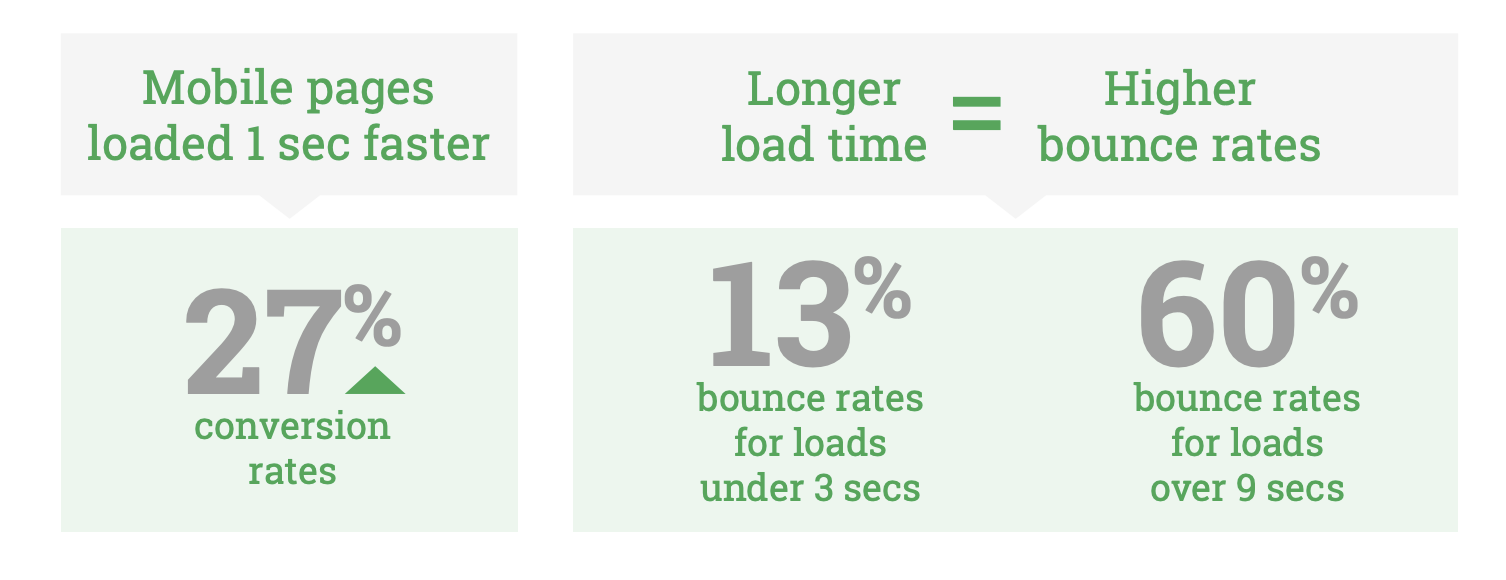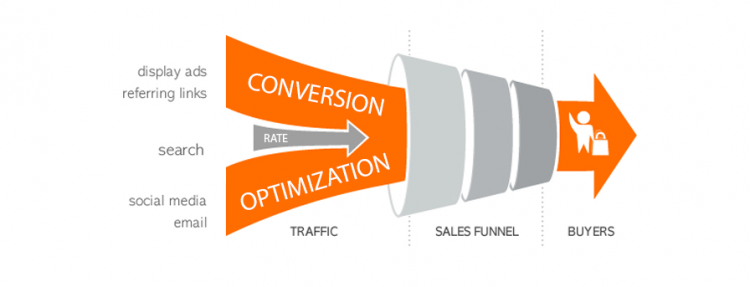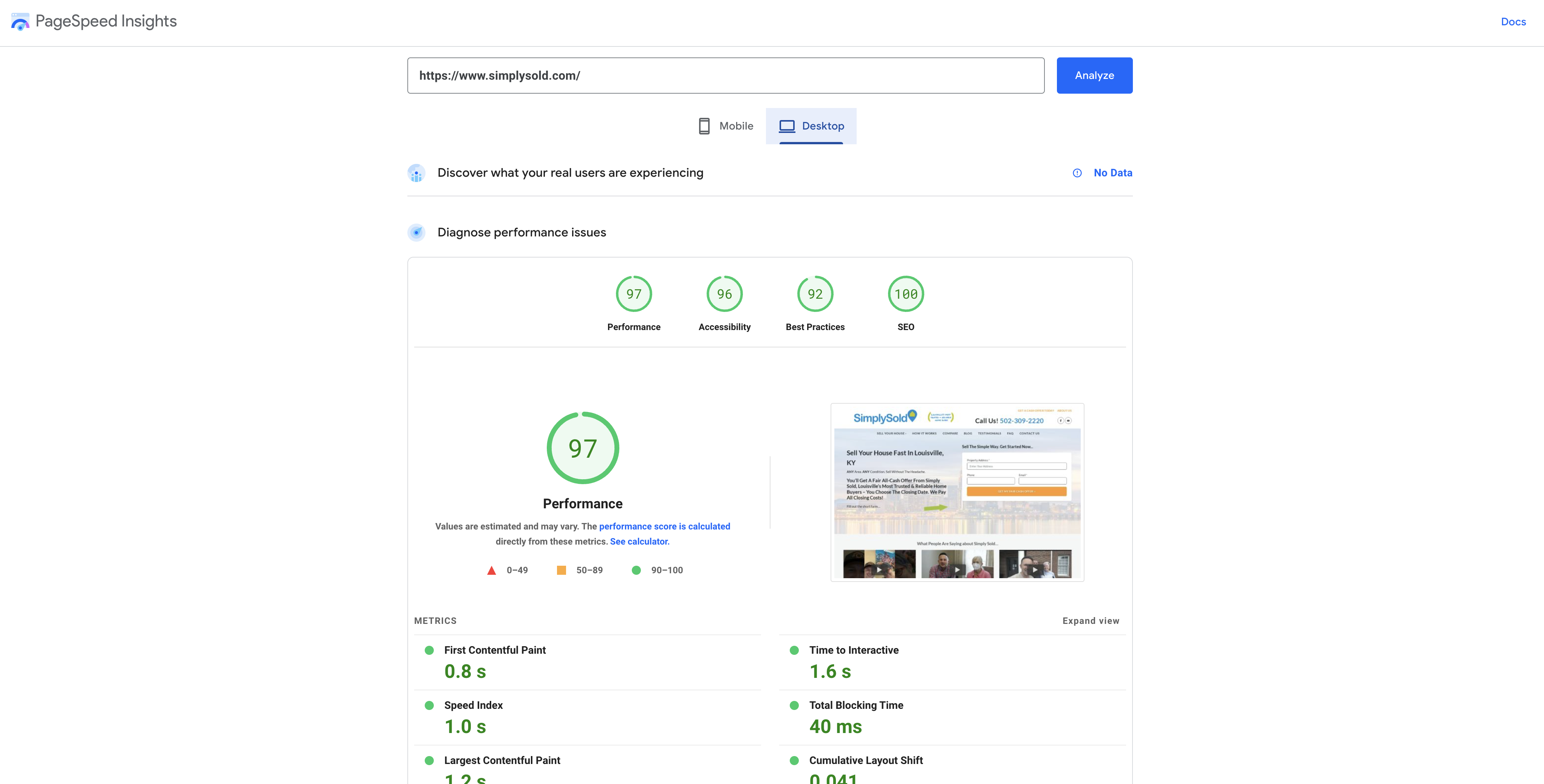
In today’s society, where people expect instant results, having a website that loads quickly is extremely important for those who search online. Studies show that websites and pages that load quickly have a lower rate of users leaving the site and a higher rate of users converting.
Google has found that improving website speed by just one second can lead to a 27% increase in conversions for mobile users. Since 70% of searchers make decisions using their mobile devices, the speed of your website significantly affects how much revenue you can generate.

There is the old saying …
“You never get a second chance to make a first impression.”
– Oscar Wilde
Well, your website speed is your first impression.
Your visitors make an instant judgment about your business. If your website loads fast, you’ve made a powerful first impression.
It’s the psychology of persuasion. By not making the visitor wait, you’re persuading them to stick around. Visitors also view fast websites as professional and trustworthy.
Having a fast website is just expected by most online users.
But I don’t need to tell you that — you’ve experienced it first hand. When you search for something in Google, click on a result and get met with a slow-as-slime website.
What you do next is the same as what everyone else does.
Leave, go somewhere else (i.e., to the competition).
And, as we all know, that slow website isn’t getting a second chance. Once you’ve (they’ve — your prospect) left, you’re not going back.
In fact, 79% of online shoppers who are dissatisfied with website performance say they won’t return to that website to buy again.
That’s almost 80 visitors out of 100!
The truth is the same for real estate website visitors: slow websites hurt conversions.
What a silly way to lose thousands of dollars.
Does Page Speed Affect Conversion Rate?

When we’re talking about page speed, the conversion rate is the crux of the issue. A slow-loading website encourages people to leave before they’ve even given you a chance.
According to HubSpot’s research, a 1-second delay in page speed results in an average 7% decrease in conversions. That would cost Amazon a whopping $1.6 billion in sales each year!
And while 7% isn’t the biggest percentage you’ve ever seen, even if that translates to 10 leads lost to a slow website every month, that could equal $10,000 or even $20,000, depending on the quality of those leads.
Look, every website is going to leak some leads — there’s no such thing as a perfect conversion rate.
But losing leads because your website takes 3 seconds to load instead of 2 seconds? That’s just silly. This article will discuss how to fix your website’s load speed.
Does Page Speed Affect Your Google Rank?
Yes, page speed does affect your Google rank. In 2010, Google announced that website speed was a ranking factor for desktop searches, and in 2018, they confirmed that page speed is also a ranking factor for mobile searches.
Google’s algorithm takes into account various page speed metrics such as First Contentful Paint (FCP), Largest Contentful Paint (LCP), and Cumulative Layout Shift (CLS) to determine the speed and overall user experience of a website.
Google’s ultimate goal is to provide users with the best search results and experience, and page speed is important in achieving that goal. Pages that load quickly and provide a positive user experience are more likely to rank higher in search results. Conversely, slow-loading pages can negatively impact user experience, leading to a lower ranking in search results.
It’s essential to note that while page speed is a ranking factor, it’s not the only one. The quality of content, relevance to the user’s search intent, and the website’s authority are also important factors in ranking. However, optimizing page speed can improve your chances of ranking higher in search results, driving more traffic to your website, and ultimately improving your bottom line.
And according to 12 case studies by HubSpot, just a 1-second delay in load speed decreases your website’s pageviews by 11%. Think about that. What if that’s the 11% of your website visitors that would turn into a few deals? How much cash would you then lose? $20,000? $50,000?
Conversely (according to the same study by HubSpot), for businesses that make $100,000 per day, a 1-second improvement in page speed brings in an additional $7,000 per day.
In other words, improving your website’s speed can automatically increase your business’s profitability without generating more leads or becoming a better salesperson.
Google cares about load speed, and you should too. Here’s what you need to do to increase the speed of your website.
How To Improve Your Real Estate Website Page Speed
How fast your website loads on a visitors browser is a big deal. The longer it takes to load, the more likely a visitor will hit the “back” button and leave.
Make sure your website is built with clean code from the ground up, your server is fast, and your images are in the proper size and format. We have all of that baked into our Carrot real estate websites.
You can do some different things to lower your page speed time. This goes for both desktop and mobile devices.
There are many ways to increase page speed, but here are seven effective strategies:
(Again, the Carrot Development Team is constantly monitoring our member sites so we can stay ahead on website optimizations. So they don’t need to worry and can concentrate on their real estate businesses.)
- Enable compression (Carrot compresses every picture before we upload them to our Carrot websites and these blog posts using a free online tool called Compressor.io. That alone could drastically speed up your page loading speed).
- Helpful article: How to Enable GZIP Compression in WordPress
- Minify CSS, JavaScript, and HTML
- Helpful article: How to Minify Your Website’s CSS, HTML & Javascript
- Reduce redirects
- Helpful article: Minimize redirects
- Remove render-blocking JavaScript
- Helpful article: How to Eliminate render-blocking JavaScript and CSS on WordPress
- Leverage browser caching
- Helpful article: Leverage browser caching
- Improve server response time
- Helpful article: 5 Ways to Reduce Server Response Times
- Optimize images
- Helpful article: How to Optimize Images for Web and Performance
Implementing these strategies can significantly increase mobile page speed and provide a better user experience for your visitors.
Test Your Website For Free
We are often asked how to test site speed and which tool is best.
At Carrot, we suggest using Google’s PageSpeed Insights Tool because the most important factor is consistency, regardless of the tool you select. It makes sense to use Google’s tool because it is their tool.

Conclusion
In conclusion, the page speed of a real estate website can have a significant impact on both user experience and the bottom line. A slow-loading website can lead to frustrated users, increased bounce rates, and lost business. On the other hand, a fast-loading website can improve user engagement, increase conversions, and save thousands of dollars in lost revenue.
Fortunately, there are many easy and affordable ways to improve the page speed of a real estate website. By optimizing images, minifying code, leveraging caching, and using a content delivery network (CDN), website owners can significantly improve their performance without breaking the bank.
Investing in page speed optimization is a smart decision for any real estate website owner who wants to stay ahead of the competition and provide a top-notch user experience. By taking the time to improve website performance, website owners can save thousands of dollars and increase revenue in the long run.